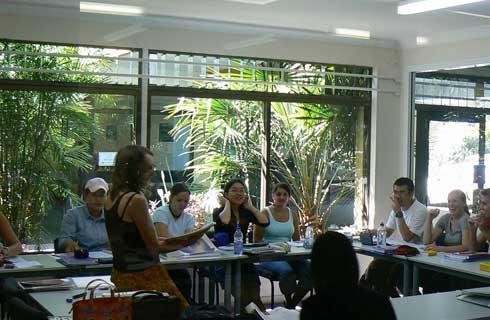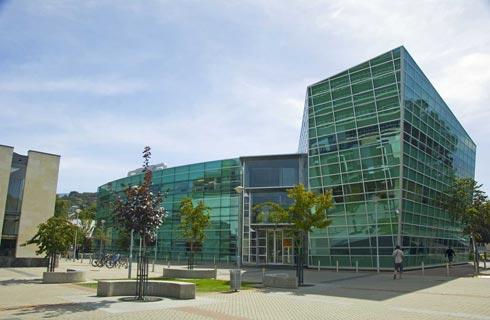Bachelor of Science in Photographic Sciences

学历文凭
Bachelor Degree

专业院系
College of Art and Design

开学时间

课程时长

课程学费

国际学生入学条件
For all bachelor's degree programs, a strong performance in a college preparatory program is expected.
Generally, this includes 4 years of English, 3-4 years of mathematics, 2-3 years of science, and 3 years of social studies and/or history.
Specific math and science requirements and other recommendations 3 years of math required, pre-calculus recommended.
Submit an official high school transcript.
TOFEL- 79
IELTS- 6.5
Generally, this includes 4 years of English, 3-4 years of mathematics, 2-3 years of science, and 3 years of social studies and/or history.
Specific math and science requirements and other recommendations 3 years of math required, pre-calculus recommended.
Submit an official high school transcript.
TOFEL- 79
IELTS- 6.5
IDP—雅思考试联合主办方

雅思考试总分
6.5
- 雅思总分:6.5
- 托福网考总分:79
- 托福笔试总分:160
- 其他语言考试:PTE Academic 58
CRICOS代码:
申请截止日期: 请与IDP联系 以获取详细信息。
课程简介
RIT's scientific photography degree immerses you in the fascinating world of scientific photography, where you’ll use photography to capture images and collect scientific data. Part scientist, part artist. A scientific photographer uses imaging to capture scientific data to explore science and medicine. These scientific images identify and solve problems–and help to advance our understanding–in biology and biomedical sciences, medicine, forensics, chemistry, and engineering. It’s a dynamic field that combines photography with imaging science, information technology, computing, optics, biology, and biomedical sciences. RIT’s Bachelor of Science in Photography provides you with the broad-based skills required of a professional photographer, combined with a solid foundation in the sciences.<br><br>You’ll complete courses that develop your abilities as a photographer and gain the photographic skills and approaches required of scientific photography. In addition, you’ll study science and technology through the lens of photography, with courses in:<br><br>High-speed photography<br>Micrography<br>Ophthalmic imaging<br>In the first two years, this scientific photography degree will immerse you in the technical applications of scientific photography. At the same time, you will pursue courses in laboratory sciences, including physics and biology.<br><br>The scientific photography degree provides you with the flexibility to use elective courses to explore areas that interest you and complement your career goals. You’ll be encouraged to use general education requirements to integrate complementary studies in subjects such as imaging science, information technology, or developmental biology to help prepare for exciting and evolving career opportunities.<br><br>You will graduate well-prepared to apply technological advances in photography to a wide variety of photographic and imaging careers and advanced degrees spanning the fields of science, technology, and medicine.
相关申请
 预科
预科 奖学金
奖学金 实习机会
实习机会 在校学习
在校学习 跨境学习
跨境学习 校园授课-线上开始
校园授课-线上开始 在线/远程学习
在线/远程学习
开学时间&学费
学费信息仅供参考,请与IDP联系以获取详细信息
| 开学时间 | 时长 | 学费 | 地点 |
|---|
学校排名

世界排名601
数据源:
泰晤士高等教育世界大学排名
本校相关课程

土木工程技术理学学士
学历文凭
Bachelor Degree
开学日期
课程费用总额


计算机工程技术理学学士
学历文凭
Bachelor Degree
开学日期
课程费用总额


电气工程技术科学学士学位
学历文凭
Bachelor Degree
开学日期
课程费用总额


机电工程技术理学学士
学历文凭
Bachelor Degree
开学日期
课程费用总额


Bachelor of Science in Environmental Sustainability, Health and Safety (Co-op)
学历文凭
Bachelor Degree
开学日期
课程费用总额


机械工程技术科学学士学位
学历文凭
Bachelor Degree
开学日期
课程费用总额

其他相关课程

摄影技术文凭
 北阿尔伯塔理工学院
北阿尔伯塔理工学院学历文凭
Bachelor Degree
开学日期
课程费用总额


安大略大学时尚商务大专文凭
 圣力嘉学院
圣力嘉学院学历文凭
Bachelor Degree
开学日期
课程费用总额


摄影文凭
 德恒学院
德恒学院学历文凭
Bachelor Degree
开学日期
课程费用总额


摄影艺术学士学位
 安大略艺术设计学院
安大略艺术设计学院学历文凭
Bachelor Degree
开学日期
课程费用总额


摄影文凭
 汉博学院
汉博学院学历文凭
Bachelor Degree
开学日期
课程费用总额


美术学士-摄影
 康考迪亚大学
康考迪亚大学学历文凭
Bachelor Degree
开学日期
课程费用总额










 美国
美国
